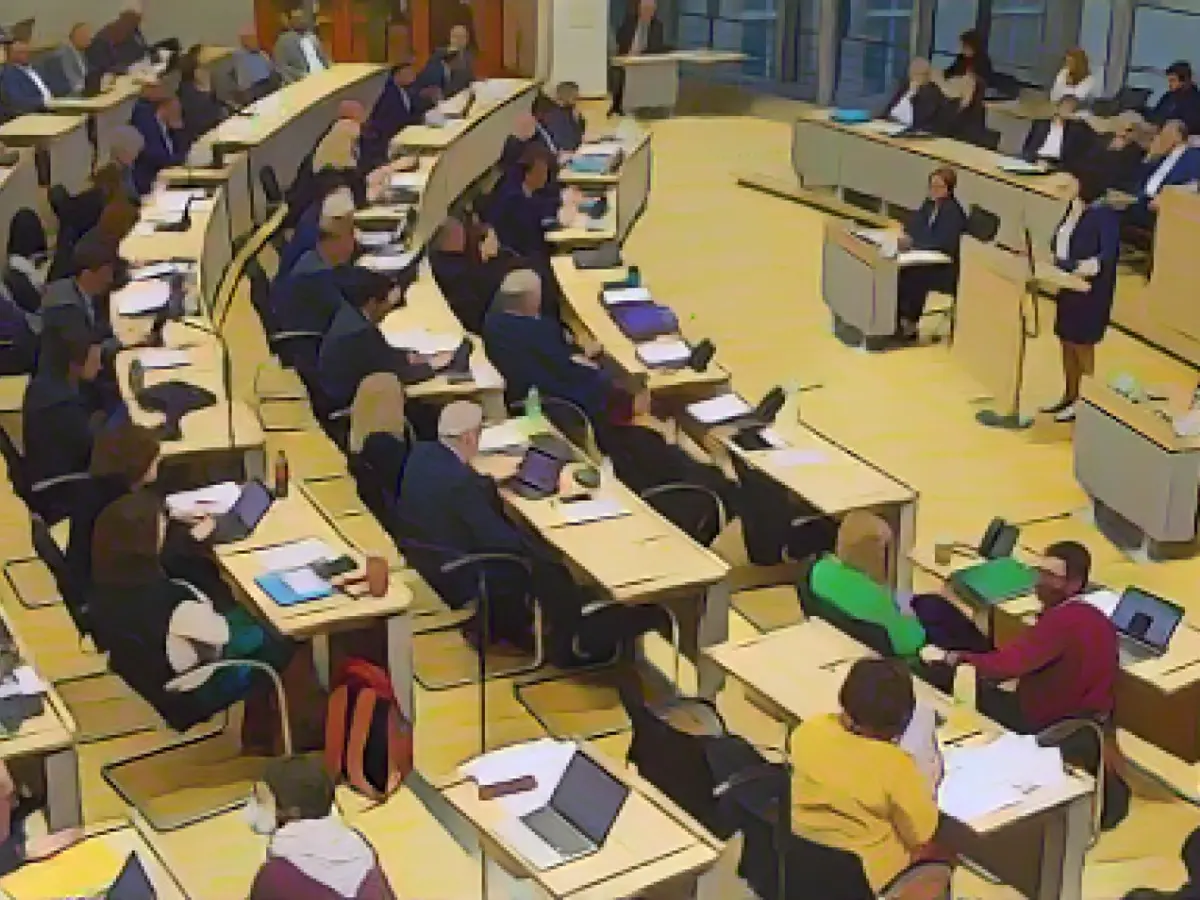Green Party Steers Clear of Asylum Policy Controversy
The highly anticipated confrontation within the Federal Party Conference of the Greens was averted when a motion to restrict asylum policies was rejected. Vice-Chancellor Habeck warned of an end to all government participation, and his critics relied on emotional appeals, but ultimately, their motion failed to gain traction.
The debate centered around the European election program and the Green Party's stance on asylum and migration policy. While Green Youth advocated for strict boundaries on future government action, the majority of delegates, numbering around 800, rejected their proposal after a lengthy, sometimes heated, discussion.
At issue was the German government's approval of the EU asylum reform and agreements reached at the Minister Presidents' Conference, which included more police powers for deportations and fewer benefits for individuals in the asylum process. The Green Youth's aim was to prevent their own government members and representatives from approving any further tightening of asylum laws, even if not tied to the European election program in practice.
Habeck's Warning
Vice-Chancellor Habeck viewed the Green Youth's motion as a "disguised vote of no confidence" that, if successful, might undermine the Greens' continued role in the traffic light coalition. If the motion had carried, Habeck would have had much to explain about his capacity to continue governing in this manner. With loud applause and angry reactions, Habeck's speech proved controversial.
Ricarda Lang, the face of the party's left, was in agreement with Habeck's sentiments, warning that the consequences would be to depart from negotiations for green-leaning migration policies within the federal government. Lang's call for trust in the Greens to maintain their positions resulted in a resounding applause.
Opposing Views
Responding to the concerns over the right tone in discussing asylum policy, Green Youth members argued that the number of refugees was not responsible for fiscal shortfalls and overburdened local authorities. Instead, they advocated for increased funding for municipalities, cautioning against giving in to CDU/CSU and AfD accusations of refugee overburdening.
In rebuttal, several delegates contended that Green Youth's methodology was inappropriate, and they stood behind the Green ministers to protect the rights of refugees. Amongst them was MEP Viola von Cramon, who expressed concern over the aggressive manner of addressing asylum matters and called for confidence to drive policy-making.
Leadership and Future Challenges
At the heart of the conflict is the debate over Europe's asylum policy and the need for order and humanity within the system. Foreign Minister Annalena Baerbock emphasized the importance of the CEAS system, urging a reform that would allow for better control and registration of asylum seekers.
With the European Parliament elections approaching in early June, Greens delegates begin negotiations on their program, electing their list of candidates including 36-year-old Terry Reintke as their lead candidate. As the party chairpersons Ricarda Lang, Omid Nouripour, and Emily Büning retained their positions, the issue of asylum and migration will remain a topic of focus for the Green Party for the foreseeable future.
Enriching Context
Recent developments reveal a shift in the Green Party's stance on refugee policies. Under prominent leaders such as Robert Habeck, the party now promotes a "ten-point plan" that shares certain elements with far-right agendas on xenophobia, asylum laws, and militarization.
In statements and actions, Green Party politicians have shown tendencies to harden asylum regulations and weaken the support services available to refugees. Some see this as a necessary measure to address social inequality, while others believe it represents a betrayal of the party's core values.
These tensions within the Green Party and the prevailing political climate burgeoning in Germany and the EU will shape the trajectory of asylum policies in the coming months.








